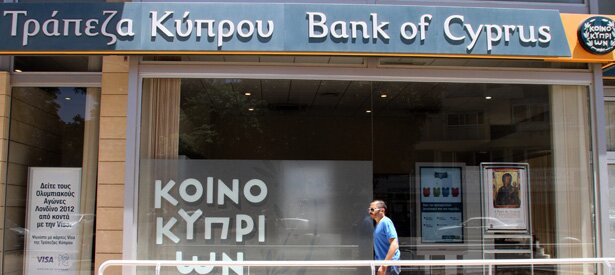Cyprus levy directed at Russian funds

The banks in Cyprus remain closed as the country waits for the government to make a decision on the proposed levy.
The unprecedented enforcement of a direct levy on Cypriot bank deposits, which is part of a proposed EUR 10 bln bailout scheme, will mostly hit at Russian funds deposited in the island tax haven, international media reports.
“Nearly a third of all the money in the Cyprus banking sector is Russian, which has raised the question if the Russians are really the main target of the tax,” Russian news portal RT wrote March 19.
The proposed move kicked up a financial storm at the end of last week as Cyprus announced that it would be placing a levy on bank savings in exchange for a huge EU bailout to save the failing economy. The proposal to impose a 9.9 per cent levy on deposits over EUR 100,000 and a 6.75 per cent levy on deposits below this figure was rejected in the initial vote held by the Cypriot government.
A deal may be struck over the coming days, most likely including an extension of the levy on large accounts and an exemption for the smallest.
“The Kremlin has not taken kindly to the news of the proposed tax levy,” RT commented. “President Putin has denounced it as criminal and Prime Minister Medvedev believes money is being unfairly ‘confiscated.’”
The proposed levy is largely the result political pressure from German authorities, unwilling to use taxpayer money to rescue banks holding large amounts of Russian capital, and used as a conduit for the Russian financial transactions. Russian corporations and individuals hold an estimated EUR 20 bln–EUR 25 bln in Cypriot banks, approximately a third of the total deposits on the island.
“With the richer countries of the euro-zone suffering from bailout fatigue, there was resistance – particularly in Germany – to the idea that ordinary European taxpayers should be writing blank cheques to Russian oligarchs who might have been using Cyprus as a money laundering destination,” UK daily The Guardian wrote on March 17.
The Cypriot government is expected to hold another vote on the levy late Tuesday.
Photo by Katia Christodoulou. Courtesy of Polish news agency PAP


